First San Francisco Partners’ Kelle O’Neal recently participated in AIRSIDE LIVE, an inaugural virtual event from the universal data authorization company OKERA.
AIRSIDE LIVE focused on critical areas for information management practitioners: data management, governance, security and privacy. Kelle, one of the presenters, spoke about data privacy and ethics and earning and maintaining trust in the digital age. She also joined a “Future of Data” panel that discussed topics that included data bias and how who’s working on data creates issues of gender.
What follows is a summary of the panel’s remarks with perspectives from these women who spoke alongside Kelle:
- Judy Ko – Chief Product Officer at StreamSets
- Kate Kuehn – Senior Vice President at vArmour
- Divya Errabelli – Vice President, Analytics Development and Advanced Technologies at Welltok
- (moderator) Monica Pal – Executive Board Member at the nonprofit How Women Lead
Future of Data Panel Take-Aways
Here are some of the questions and answers taken from the half-hour panel session transcript, reproduced here as accurately as possible and edited for clarity.
Monica’s question to panelists: What guardrails do we need to ensure that data is used “for good, not evil” — and does having more women involved bring more light to the ethical use of data?
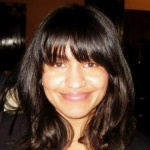
Panelist Divya Errabelli, VP at Welltok
From Divya, who said that the topic of bias is very close to her heart: Having a diverse, whether that is race or gender, workforce that works with data helps you bring that perspective to the table … and that (helps make sure) we are not introducing bias from the data we’re using.
Kelle: Many of us at our company think about this topic from a behavioral perspective — because, fundamentally, it is about people making choices around what they do with the data and ensuring people are making the best choices, and that the behavior is within the realms of what that company wants from a cultural perspective and from a face-to-the-market. It’s important that everyone that works in the company understands that data is important and that they have a (data-related) role they need to play. Yes, you can create guardrails, and, yes, you can tell people what they should and shouldn’t do. But, people need to believe that data is an asset they should protect. They personally own data and have that risk, just like the (company’s) customers, partners and suppliers do. Getting people to understand this inherently is a good step to ensuring they make the right decisions and the ones their company wants them to make.
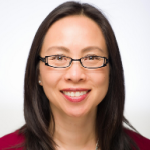
Panelist Judy Ko, CPO at StreamSets
Judy: Part of (this topic) is holding to more than just one objective. It’s not always 100% about shareholder value or the return to your VC investors — there are other things, too — community and societal considerations and not going so hard on the most commercial objectives to the exclusion of others. I do think women are more likely to hold two or three of those things together and (keep them) in balance, as opposed to going overboard and doing things 100% for the bottom line … and I think we have seen frayed ethical standards when those other considerations weren’t taken into account.
Kate: Having a diverse team managing and understanding the ethics behind the data is critical. One of the beautiful things is that women look at data differently than men. Women look at security differently than men, too. (Diversity helps us) think of how that data could be utilized in less than ethical ways. Today, there is a wake-up call that it’s not about protecting the perimeter — you have to protect the data. So understanding how (data) could be utilized in every form and function and every person that could potentially be impacted by (the use) is something that needs a lot of attention.
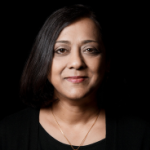
Moderator Monica Pal, Exec. Board Member at How Women Lead
Monica: It’s been reported that about 31% of the people working in data science are women, and studies have shown that when you have a critical mass of women (around one-third), that’s what is needed to change culture. Here in data, we might actually be close to reaching that number. In another study, it stated the “quit rate” of women working in technology is about 41%. What can we do as industry leaders and in our roles to help make critical mass happen and stop women from dropping out?
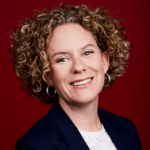
Panelist Kate Kuehn, Senior VP at VArmour
Kate: This is a topic that’s very near and dear to my heart. I love hearing (those) stats because — you’re right — they’re headed in the right direction. In security, we have a long way to go to get to similar numbers. The critical thing I see is that we have to create a culture of inclusion for women — and what I mean by that is we have to do a lot better at conscious work/life balance. I see a lot of pressure for women that, to continue to advance, they still have to be concerned about having work/life balance. I remember early in my career when people weren’t being kind to me about choosing to be a mom. (“You know, you’ll never get to advance or be able to go back where you were.”) And so I think we need to be conscious of how we create a positive environment that’s inclusive of work/ life and how we make it okay that if you love the position (you’re in) and don’t continue to advance. It’s okay if you stay in a role that’s right for you. We also need to keep a culture of kindness — how COVID made all of us think about work/life balance. I don’t want to lose the positive momentum we’ve had, understanding we’re all human.
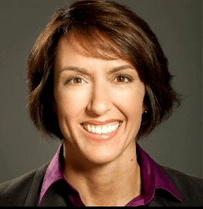
Panelist Kelle O’Neal, Founder & CEO at FSFP
Kelle: I would agree wholeheartedly. And I think that the COVID environment made that very obvious to people when it wasn’t obvious before. The acceptance of remote work and this new work/life balance — whatever balance means in that context, right? — has become everybody’s issue and a male issue, also. I don’t have the statistic in front of me, but I read that (during the pandemic) women were the ones that really had the brunt of homeschooling and digital learning. The wife of one of the men on my team is a healthcare worker, and they have three kids, ages three, five and seven. He had to deal with (digital learning) … and that sort of awareness across gender was really important. Today, if a person gets their work done at 10 o’clock at night or Saturday during the soccer game or whenever the work gets done in a way that is part of that person’s world, we should take advantage of what they bring to the table and what they’re really good at without putting these constraints on them that were (first) constructed in an environment very different than today.
Divya: I completely agree with you, Kate and Kelle, in terms of the impact of COVID and what that’s done. We used to have a couple of days a week or even one day a week for our team to do that, and it was very strict. There was this culture of “things get done in the office.” And there are definitely some pros and cons to that. There’s better collaboration. It’s more efficient. But there was this guilt feeling on the days you were not in the office and working from home. I noticed that with COVID and everybody being remote, that kind of disappeared.
Judy: Another aspect is related to this is recruiting — what about the candidates who don’t look like they’re qualified? Kelle and Kate, you both mentioned you came from backgrounds that wouldn’t normally be a direct feeding line to a tech company or a highly analytical data-oriented job. A lot of our recruiting and candidate evaluation processes are very rigid — as in, “to know you can do this thing, you have to already done it — as opposed to, “can you learn it, and can you learn it quickly?” We often don’t leave a lot of flexibility for that because we look for someone who’s already done the work, so you’re inherently narrowing your scope. And that applies to women and people of color and across the board. We have to find a way to gauge people’s potential as opposed to their experience, or we’re going to stay in a rut.
Kelle: Judy, that’s really important. I read a statistic that said if a woman reads a job description, she will not apply unless she believes she meets every requirement or at least 90%, whereas a man would read a job description and will apply even if they only meet 50% of the requirements.
Monica: So, making sure we’re a little bit more open and conscious in the recruiting process, making sure we’re mentoring, supporting women when they’re on the teams, having more flexibility — and hopefully, we can change the statistics on retention. It’s a huge opportunity in data, now that you’re so close to critical mass, to make those big changes happening and be a role model for other parts of tech to follow.
Looking Forward to AIRSIDE LIVE 2022
From the perspectives of those of us from FSFP who attended, we enjoyed AIRSIDE LIVE’s creative, aviation-themed elements, the high quality of the program and the speakers’ expertise and the diverse companies represented — e.g., AWS, Credit Suisse, Gartner, BigID, Rimon Law, Inspire Brands and Collibra, to name a few.
We look forward to participating in AIRSIDE LIVE next year and thank Okera for its hard work in making this a great event and to the many sponsors who supported it.
If you’re wondering about the name and theme of the event, here’s what Okera said in the event’s FAQ section.
“Airside” refers to “the side of an airport terminal beyond passport, security and customs control.” We named the event AIRSIDE LIVE because it’s our vision to help you learn how to go “airside” with your data — to breeze through security with no more obstacles to get to your destination, wherever that may be (cloud migration, an AI/ML project, customer 360, etc.). Plus, who hasn’t missed traveling over the last year?

